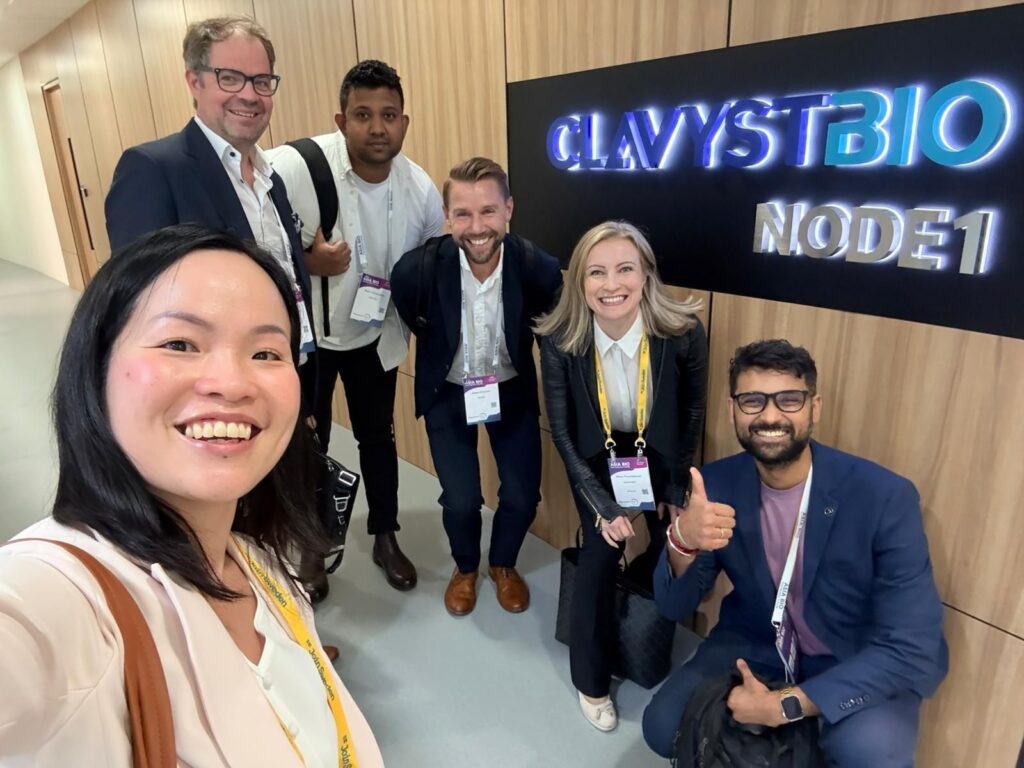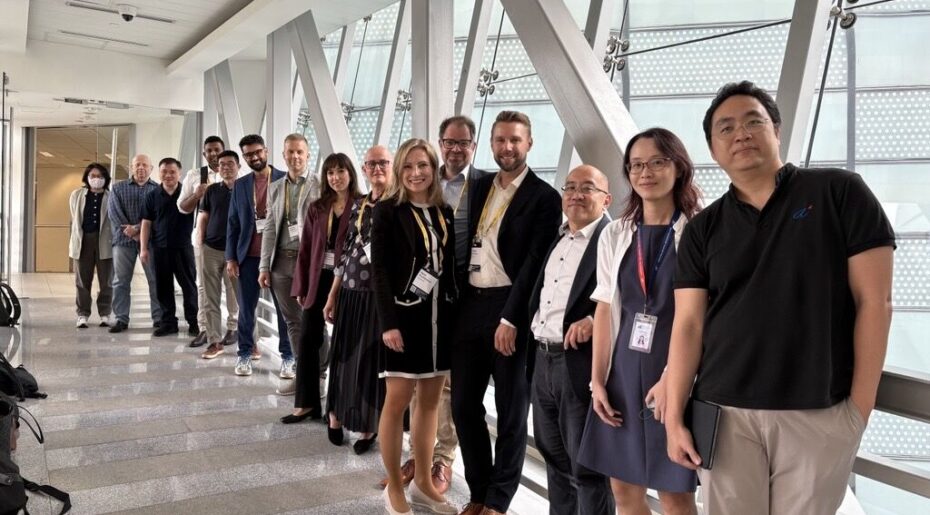In November 2024, Sweden and Singapore signed a MoU in healthcare to advance global health innovation and encourage partnerships and exchanges addressing global health challenges.
Since the signing of the MoU, actors in both countries have been exploring the strengths and gaps of their respective ecosystems. One area identified for Swedish-Singaporean cooperation is biotech.
– From the biotech industry, six companies and a venture capitalist joined the delegation to meet new collaboration partners, seek investments and customers, says Marjo Puumalainen, International Director at SwedenBIO.
The delegation program was tailored to the companies’ needs. Among the local actors the delegation met were the Agency for Science, Technology and Research (A*STAR), a major research and incubator unit in Singapore, three venture capitalists, and Advanced Cell Therapy and Research Institute, Singapore . Additionally, biotech and investors attended the ASIA BIO Partnering Forum to meet several leading Asian pharmaceutical and investor companies. To increase the visibility of the Swedish biotech landscape, Marjo Puumalainen joined the opening panel and Max Odlander, partner at HealthCap, joined the closing panel of the conference.
Two of the attending companies have already ongoing collaborations with Singapore, Sprint Bioscience has announced a research collaboration with A*Star, while Alder Therapeutics has a long-standing partnership with Singapore and holds IP originating from a Singaporean university. To accelerate and expand the cooperation, however, funding is needed, argues Puumalainen.
– With ongoing industry and governmental collaborations, Singapore and Sweden are well positioned to develop innovative solutions within healthcare. As a next step, a dedicated funding program would be a tangible step, enabling small R&D collaborations to be de-risked and paving the way for venture capital investment, she explains.
What Singapore offers, what Sweden brings
Singapore stands out from other Asian countries. With only about four million people, it is not viewed as a major end market for drugs, and with regulatory frameworks scattered across Asia, clinical trial opportunities are limited. Its value lies in research collaboration, access to financing, and its role as a regional hub. While its pharma sector is less innovative than some peers, Singapore is strong in financing and manufacturing. AstraZeneca recently announced a major advanced manufacturing site there.
– Sweden can play an important role by collaborating to accelerate commercialization. Singapore has invested heavily in academic research through A*Star and its universities, but commercialization remains challenging, says Puumalainen. She adds: I spoke with a professor involved in an exchange with KTH who was impressed by how many startups Singaporean students launched after their time in Stockholm. He noted that Sweden fosters independent thinkers, while in Singapore, founding companies is still less common.
Exchanges with Singapore will continue.
– A Singaporean finalist will participate in the Sahlgrenska global health hackathon final during the upcoming NLSDays in Gothenburg this October. Ideally, for next year’s NLSDays we will also be able to welcome a Singaporean delegation, says Marjo Puumalainen.

Swedish companies that participated in the delegation:
Alder Therapeutics
Invest in Skåne
IONLACE
Medclair
Medicon Village
Prolevi Bio
Rud Pedersen Public Affairs
Salipro Biotech
Sprint Bioscience
Symcel





